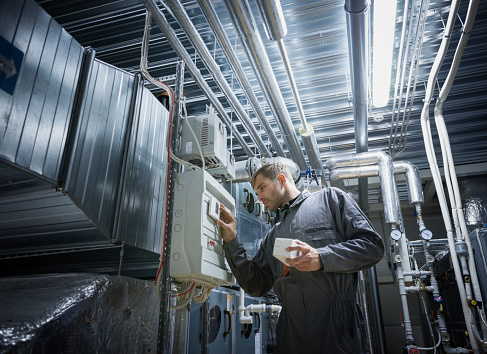Presented By: ConEdison
Why Building Owners Invest in HVAC Energy Efficiency Upgrades

Heating and cooling a large building can consume a tremendous amount of energy, that can be wasted without a proper system in place to regulate the building to ensure clean air and a comfortable temperature. Energy waste is a result of inefficient design, equipment and system control causing equipment to use energy when it is not necessary.
Modulating heating, ventilation and air conditioning (HVAC) systems control temperature more precisely, remove extra humidity, run quietly and are energy efficient. Although a proper HVAC system is beneficial to the building and our environment it’s not always easy to know whether you should repair or replace your HVAC. It can be an expensive up-front cost to upgrade however with incentives such as the Con Edison Demand Management Program (DMP) providing financial incentives when you lower kilowatts used during peak energy consumption on the hottest days of the year, in the long run it is better for the environment and will ultimately save you money.
Air Compressor
There are a few systems that make up an HVAC system. The Air Compressor helps to power a variety of equipment, including machine tools and control systems. To maximize the efficiency of your air compressor, check the system for leaks. In a pressurized system, leaked air can account for the biggest inefficiency. Check and clean the air filter occasionally, it reduces the pressure drop of the compressed air system. The Compressor’s belt should also be checked for proper tightness. An updated and checked air compressor can reduce the amount of Kilowatts (KW) used during peak times. The DMP will pay up to $1,620 per KW (or up to 50% of project costs) for the installation of this and other HVAC measures.
Chiller
Individual components and subsystems in a chiller plant determine the efficiency level of the entire chiller operation. The components of a chiller plant include chillers, pumps, and the water tower. Chiller operation can consume more than 30% of the building’s energy usage during summer hours, and if these components are not up to date and working properly, your business could be missing out on substantial energy savings.
Some tips to save energy include, pre-cool the building by reducing the space temperature 5-10 degrees below normal, reduce the number of chillers in use, set the load on the operating chillers to prevent them from increasing, utilize the variable frequency drives on the chiller. These techniques can reduce the chillers load by 15%.
Modular Boiler
Modular boilers are ideal for the implementation of a boiler control strategy to keep your energy use in line with your business needs. In the case of multiple modular boilers, different boilers can operate at different energy levels which can increase the efficiency of the heating system. Boiler maintenance is essential to an efficient heating system. There are several key systems that need to be regularly assessed and maintained by a heating system professional including venting system, heat exchanger, boiler or furnace controls, forced air system, hot water system, and steam system.
Every building requires a Heating, ventilation and air conditioning (HVAC) system to ensure safe and healthy building conditions. Con Edison offers incentives through their DMP to update your HVAC system. There are many ways you can update your system to ensure your buildings conditions are regulated with respect to temperature, humidity and air quality. Incorporating an up to date HVAC system will reduce energy during peak energy consumption times and will reduce demand on the system.



